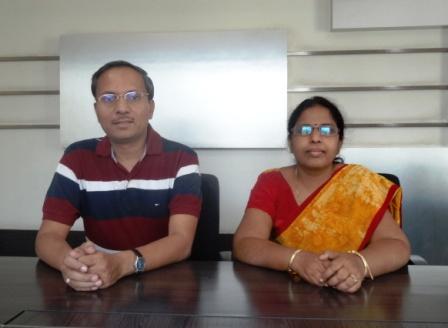Nagpur Today spoke to Pankaj and Nalini Agrawal, Directors of the city’s biggest overseas education consultancy Krishna Consultants about the common misconceptions, opportunities and trends in overseas education among Nagpurians. Following are excerpts from the interaction:
Meghna Majumdar: What are the common misconceptions that people in the city have about going abroad for further studies?
Pankaj Agrawal: The most common misconception is that overseas education is extremely expensive and unaffordable. It is, in fact easier to get admission in a good institution abroad than in elite Indian institutions like IITs or IIMs. Those institutes generally admit only 1% (2% including the quotas) of the total students who apply, whereas many prominent foreign institutions admit 10% of the Indians who apply.
Nalini Agrawal: Another big hindrance that deters able students from going abroad is their fear of an unknown place. Many good students in the city don’t look beyond city colleges towards colleges even in Mumbai or Pune, so going overseas is hardly even a question.
Meghna Majumdar: How important is fluency in English, and is it a problem for Nagpur students who apply abroad?
Nalini Agrawal: Not at all. I have found Nagpur students to have quite fluent English, and they have the advantage of knowing exactly what they want and being focused about it, as compared to students in other cities like Pune or Chennai where we have also consult. The only exceptions are students from the Marathi Medium or from any vernacular medium, in which case their English can be improved by coaching.
Meghna Majumdar: Which are the more popular courses that students from the city opt for?
Pankaj Agrawal: Students from the city mainly opt for Management and Engineering courses, and also for the Pure Sciences, since the scope and encouragement of research in Indian institutions- excepting the topmost ones- is very restricted.
Nalini Agrawal: Professional courses in Fashion Design and the Media have also become popular. I had a student this year who wanted to go in for Social Work- courses like these are few and far between in India- but such cases are rare in the city.
Meghna Majumdar: What arguments would you put in favour of overseas education as against higher studies in India, to a student in doubt?
Pankaj Agrawal: The environment for studying in universities abroad is very encouraging- Research is encourage and funded greatly, and unlike rigid and demanding colleges in the country, those institutes give you a lot of freedom. Many students here go to college because they are obliged to, not because they want to, which is also because students here are made to decide their career paths early and have to go through a lot if they want to change it after starting college. A Mechanical Engineering student, for example, does not have the option of changing to another stream if he realises his interests late. In many institutions overseas, you won’t have to choose your specialisation for the first two years in a five- year graduation course. Another big point is that the syllabus in those institutions is updated according to current events and industry needs every year; you won’t even find the same prospectus from one year to another.
Nalini Agrawal: Another big advantage is that people from the industry come to teach in large numbers, out of passion for their line. I have read that Neil Armstrong taught for many years after work- imagine learning about space less from your textbook and more from someone who has actually been to the moon! We do we have passionate, experienced teachers like Dr. APJ Abdul Kalam in India, but they, again, are rare.













